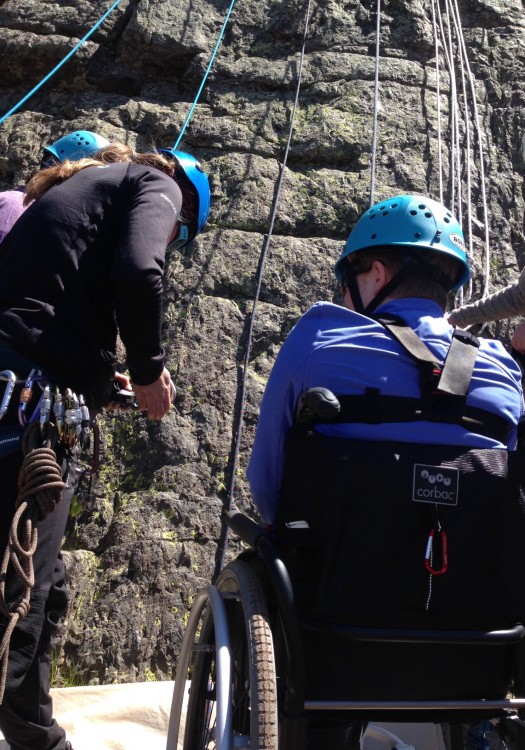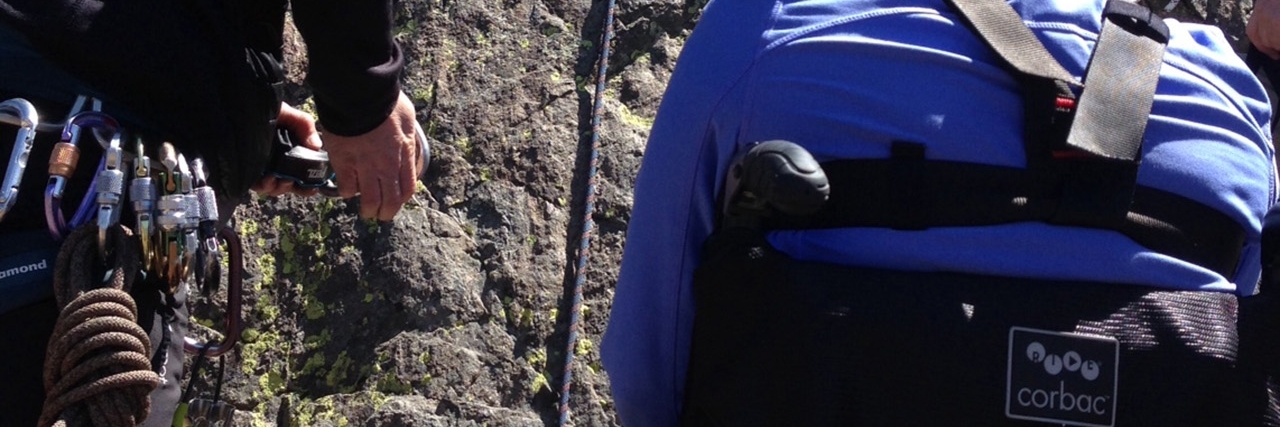The first day I began using a wheelchair, greetings from both strangers and friends shifted from “How are you?” to “How can I help you?” They started offering help when I was working, eating, shopping, walking my dog, swimming, and going to the restroom. While I’m not asking people to stop offering to help with daily tasks, I believe we should question the reasons why wheelchair users need help, and able-bodied people feel they need to offer help.
I could do many tasks on my own if businesses, housing authorities, and medical systems created spaces with wheelchair users at the forefront of design, rather than as an afterthought. In stark contrast to the stereotype of wheelchair users as pitiful and incapable, my wheelchair means independence and freedom for me. I cannot participate in certain activities without assistance because of poorly designed physical and social spaces, not my wheelchair itself.
Wheelchair users are a heterogeneous group with incredibly diverse experiences, strengths, support needs, and personalities. Please accept this disclaimer: I speak only from my personal experience.
Here are five ways you can support independence and self-determination for wheelchair users:
1. Learn how to answer questions about accessibility. I have to plan every activity of my day around accessibility. I have been in many situations where someone reassured me in advance of accessibility, but I found out upon arrival that I would need to be carried up a flight of stairs, I could only stay in one corner of the room, or I would have to sit two feet below everyone else at the table. Be prepared in advance to answer questions about accessibility by thinking through the process of entering, engaging, and exiting the venue. Keep in mind that what might be accessible for one wheelchair user might not be accessible for another. If possible, give a detailed description of the space, including any steps or curbs, the terrain, the height of tables, width of the aisles, and setup of the restroom. Help by providing informed, thoughtful answers about accessibility.
2. Host events in accessible spaces. When I first started to use mobility devices, I was shocked at how few special events, meetings, and social activities were held in accessible venues. Strangers and acquaintances have offered to carry me and my chair up flights of stairs or give me a piggy back ride over rough terrain. Not only is being carried embarrassing and uncomfortable, it also causes postural changes that make me incredibly ill. Lack of accessible events and gatherings can cause isolation, disenfranchisement, and barriers to employment. Rather than offering to help by carrying me, offer to move an event to an accessible location or encourage the organizers to do so.

3. Advocate for truly affordable, accessible housing. I currently live in a supposedly wheelchair accessible apartment, the only one in town I could find in my price range when I needed to move. But I still struggle to navigate my own my home. Thick carpets, high counters, and narrow patio doors make moving around my home and caring for my basic needs exhausting. These challenges multiply in the winter when the complex managers take days to shovel, and shovel snow into the ramps when they finally do clear paths. You can help by shoveling your sidewalks properly or encouraging your complex to do so, support affordable housing in your community, and make accessibility changes to the properties you lease.
4. Support access to quality health coverage, care, and medical equipment. Nearly a year passed from the day I scheduled an appointment with my team of specialists about my increasing mobility needs to the day my custom wheelchair was delivered. A year is a very long time to not be able to leave your bed. As such, I used a generic wheelchair that I could barely push a few feet. It caused injuries, muscle and joint pain, and back problems. I needed help throughout the day with tasks that now, with my own chair, I can do independently. Help wheelchair users achieve the highest level of independence they can by advocating for a health care system that allows them to get the care they need in a timely manner.
5. Support disabled individuals in advocating for themselves. I am the expert in my own experiences, body, and needs. I have been managing my diseases for over 15 years and can tell you better than anyone else what I need. Involve me in your conversations about accessibility. When you witness an act of ableism, ask me if/how I would like support. When I decline your offers for assistance, don’t continue to provide that help. Listen.

